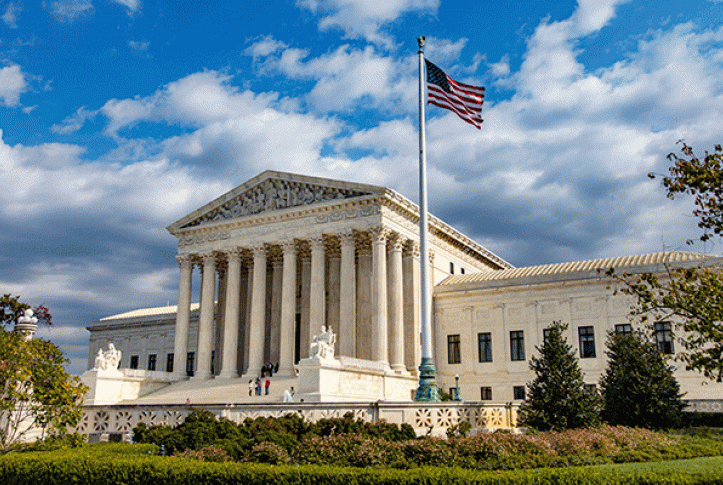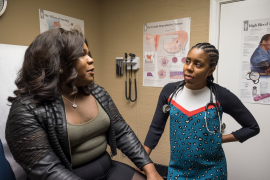On July 8, the Supreme Court of the United States handed down a decision in two cases: Little Sisters of the Poor v. Pennsylvania and Pennsylvania v. Trump. The decision is the Court’s latest foray into the most litigated Affordable Care Act (ACA) issue — whether organizations that object to contraceptives for religious or moral reasons can block their employees and students from receiving contraceptive coverage through their group health plans. The Court upheld Trump administration regulations that exempt objecting organizations from having to cooperate in providing such coverage.
Background
The ACA requires insurers and group health plans to provide their enrollees with specific preventive health services without cost, including women’s services included in guidelines written by the Health Resources and Services Administration (HRSA). In 2011, HRSA designated contraceptives as one such service. Recognizing that some religious groups object to contraceptives, the U.S. Department of Health and Human Services (HHS) excluded churches and similar organizations from the mandate.
But many other entities that had religious objections were not exempted, including nonprofit hospitals, schools, universities, and charities, as well as some family-owned businesses. In 2013, HHS amended its rule to allow other religious entities to refuse to cover contraceptives. The rule required objecting organizations to certify their objections to their insurers and plan administrators. In most instances, the insurers or plan administrators were then required to provide contraceptive coverage themselves. Only nonprofits qualified for the exemption. Many nonprofits rejected this accommodation and sued, asking to be totally free from the certification requirement. Meanwhile, family businesses sued as well, asking for an accommodation of their religious beliefs. Ultimately about 100 nonprofits and businesses pursued lawsuits.
The first case to reach the Supreme Court, Burwell v. Hobby Lobby, held that the Religious Freedom Restoration Act (RFRA) entitled non–publicly traded businesses that objected to providing contraceptives for religious reasons to an accommodation. (RFRA provides that federal regulations may not substantially burden the exercise of religion unless the regulation is the least restrictive means of furthering a compelling governmental interest.) Shortly thereafter, HHS adopted an interim rule allowing objectors simply to notify HHS of their objection.
Some objecting employers did not find the new accommodation acceptable, and the lawsuits continued. In May 2016, a divided Supreme Court unanimously proposed that parties come up with a compromise that accommodated religious exercise while also ensuring employees “receive full and equal health coverage, including contraceptive coverage.” The Obama administration was unable to find such a compromise.
The Trump administration took a radically different approach. It adopted two new rules that gave entities objecting to contraceptives for religious or moral reasons — including for-profit businesses, insurers, and individuals — the option of giving no notice to the government or their insurers. Several states filed lawsuits in federal court challenging these rules. The Supreme Court reviewed an appeals court decision blocking the rule in favor of Pennsylvania and New Jersey.
The Decision
Justice Thomas, writing for the majority and joined by Chief Justice Roberts and Justices Gorsuch, Alito, and Kavanaugh, held that the Trump rules complied with the ACA. He said the rules allow HRSA to decide which women’s preventive services are included in the requirement and to whom the requirement applies. He further held that it was appropriate, indeed necessary, for the administration to consider RFRA in creating exceptions, though he did not decide that the Trump rules were required by RFRA. Finally, the majority concluded that no procedural errors were committed in the issuance of the rule.
Justices Alito and Gorsuch agreed with the majority but would have gone further to hold that RFRA compelled the creation of an exception for religious organizations. Justices Kagan and Breyer went along with the court’s decision, concluding that the administration could let HRSA determine to whom the contraceptive mandate applied. However, these justices suggested that further proceedings in the lower court should address whether the rule was arbitrary and capricious in violation of the Administrative Procedures Act.
Justices Ginsburg and Sotomayor dissented, arguing that the ACA only allows HRSA to determine what women’s health services must be covered and not to create exceptions to the coverage obligation. They also contended that RFRA does not authorize the creation of absolute religious exceptions that disregard the interests of the intended beneficiaries of a law. And, in any event, they concluded, the original Obama rule accommodation adequately protected the religious organizations.
What’s Next?
The decision immediately deprives between 70,500 and 126,400 women access to low-cost contraceptives, and it could potentially affect 2.9 million more women insured through employers that could choose exemption. It does not necessarily bring an end to the lawsuit or to lawsuits raising the same issue in other courts. That’s because the Supreme Court left open the question of whether the rules are “arbitrary and capricious” in violation of administrative law requirements.
More broadly, the decision potentially prioritizes religious beliefs above nearly any other interest. If a Democratic administration takes over in 2021, it could potentially amend the rule again to broaden access to contraceptives. But any new rule is likely to face a whole new round of litigation invoking this case.




